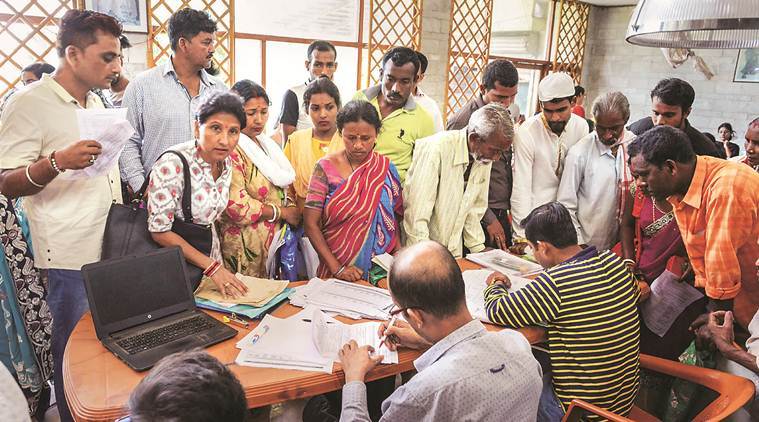 To be considered an Indian citizen in Assam, one has to prove either she or her ancestors have been living in Assam before 1971, the Assam Accord cut-off date. (Representational image)
To be considered an Indian citizen in Assam, one has to prove either she or her ancestors have been living in Assam before 1971, the Assam Accord cut-off date. (Representational image)
As many as 15 documents which included voter lists of four years, a parent’s NRC clearance, land revenue payment receipts, certificates from the village headman attesting to permanent residency and marriage, ration card, PAN card and bank passbook have been rejected by the Gauhati High Court as proof of Indian citizenship.
In an indication of the challenges that lie ahead in an NRC exercise, Jabeda Begum alias Jabeda Khatun, of Guwahari village in Tamulpur of Baksa district, submitted these documents to back her claim of citizenship after being declared “a foreigner of post-1971 stream” by a Foreigners Tribunal in May 2019. She lost the challenge with the High Court ruling that she “failed to prove her linkage with her projected parents and her projected brother”.
To be considered an Indian citizen in Assam, one has to prove either she or her ancestors have been living in Assam before 1971, the Assam Accord cut-off date.
To make it to the NRC (the final list has since been rejected by the Assam government), one had to submit documents that established pre-1971 ancestry. Two sets of documents (List A and List B) were admissible. List A had documents establishing that the person or their ancestors lived in Assam prior to 1971 (NRC of 1951, pre-1971 voter lists etc). People born after 1971 could submit List B documents (PAN card, birth certificate etc) to link themselves to a pre-1971 ancestor.
Jabeda Begum’s advocate Ahammad Ali said she is “about 50, illiterate and quite poor.”
“We gave a number of documents but the court was not satisfied since it felt that that the documents were not enough to prove linkage to her parents,” Ali said.
Syed Burhanur Rahman, also an advocate in the High Court, said: “What worked against Begum is that she was not able to link her relationship with her parents. The 1997 voter list she submitted had her husband’s name and not her parents’ names. Moreover, it had marked her ‘D’ or a doubtful voter. Technically, the court order has no fault. While the Gaon Panchayat document is a valid certificate and can be used for linkage for a married woman, it is subject to further scrutiny.”
Rahman said Jabeda Begum could file a review petition in the High Court or approach the Supreme Court. “She can question why her Gaon Bura (village headman) certificate was rejected as a linkage document despite the Gaon Bura personally attesting the same in the FT. Also, under Section 50 of Evidence Act, her brother’s testimony is enough to prove that she is his sister,” he said.
Also read | ‘Will they take me away?’
The judges, in their order, said: “In the instant case, the petitioner claimed that she is the daughter of Lt. Jabed Ali and Jahura Khatun @ Jahera Kharan. She could not file any documents to link herself with her projected parents. Certificates issued by a Village Gaon Bura can never be the proof of citizenship of a person. Such certificate can only be used by a married woman to prove that after her marriage, she had shifted to her matrimonial village (Rupjan Begum Vs. Union of India, reported in (2018) 1 SCC 579).”
“This Court in Md. Babul Islam Vs. Union of India [WP(C)/3547/2016], has already held that PAN card and bank documents are not proof of citizenship. Md. Samsul Ali, the projected brother of the petitioner, adduced evidence before the Tribunal. He claimed to be 33 years old and his name appeared in the Voter List of 2015. The petitioner could not file any documents to link herself with her projected brother, Md. Samsul Ali.”
“Land Revenue Paying Receipts do not prove a citizenship of a person. Therefore, we find that the Tribunal has correctly appreciated the evidences placed before it and we could not find any perversity in the decision of the Tribunal. That being the position, we would reiterate that the petitioner failed to prove her linkage with her projected parents and her projected brother. Therefore, we find that this writ petition is devoid of merit and accordingly, we dismiss the same,” the order stated.